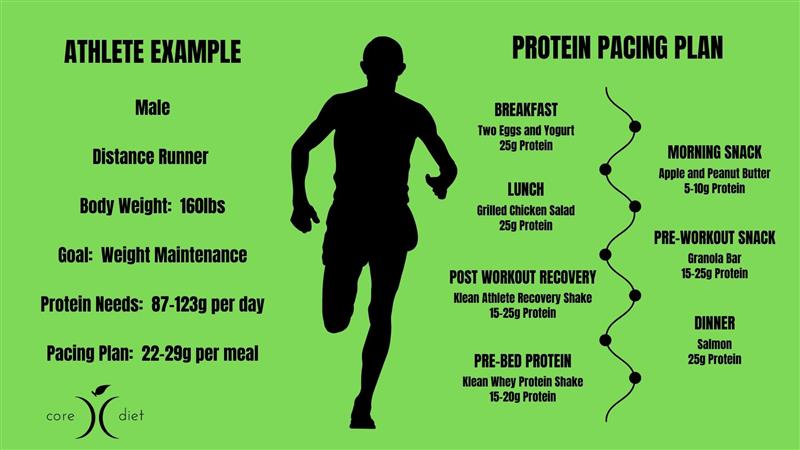The Joint Position of the Academy of Nutrition and Dietetics, Dietitians of Canada, and American College of Sports Medicine make the following recommendations for protein intake for athletes:
- Intake of 1.2-2 grams/kg/day of dietary protein to support metabolic adaptation, repair, remodeling, and protein turnover
- Up to 2.5 grams/kg/day is generally accepted to be safe, although above 2.5 grams/kg/day is believed to offer no adaptive advantage
- When restricting overall energy intake for weight loss, protein needs are higher and athletes should aim for 2-2.5 grams/kg/day
But have you ever thought of HOW to achieve those protein goals?
Traditional guidelines focused on total protein intake, however, newer recommendations now highlight the importance of spreading protein intake evenly throughout the day to maximize muscular adaptation to training. The optimum per meal serving of protein for athletes (with a goal of weight maintenance) is 0.3-0.4 grams/kg/meal. Doses of >40 grams at one time, have not yet been shown to further muscle protein synthesis and may be useful only for the largest athletes or during weight loss.
As an example, a 160 pound (72.7 kg) male distance runner, whose goal is weight maintenance, has protein needs of roughly 87-123 grams/day. This translates to 22-29 grams per meal. Ideally, the timing of this intake would be:
- 25 grams of protein at breakfast, lunch, and dinner (75 grams)
- post-workout recovery drink/snack with 15-25 grams of protein
- pre-bed dose of 15-20 grams of protein
- several snacks throughout the day containing 5-10 grams of protein each















Comments